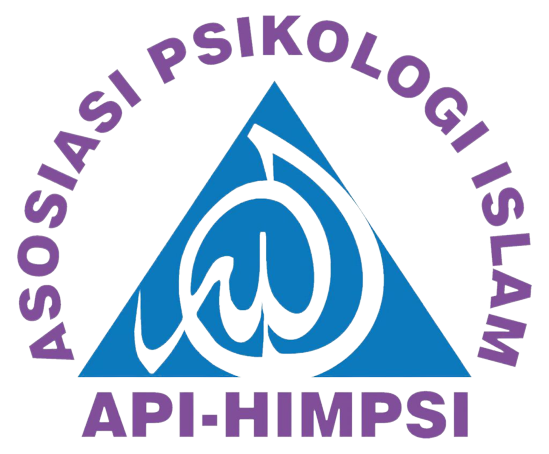Effect of Parental Favouritism on Sibling Rivalry in Adulthood
DOI:
https://doi.org/10.36341/psi.v8i2.5555Keywords:
Parental Favoritism, Sibling Rivalry, AdulthoodAbstract
This study aims to determine the effect of parental favoritism on sibling rivalry in adulthood. Sibling relationships are often characterized by a love-hate relationship, where individuals value their siblings as people who support them lovingly, but also as aggressive and antagonistic people. Sibling rivalry is influenced by many factors, one of which is parental favoritism. A quantitative approach was used in this study with parental favoritism scale and sibling rivalry scale for data collection. Furthermore, the data were analyzed using simple linear regression test. The findings of the analysis show that there is a positive influence of parental favoritism on sibling rivalry with a regression coefficient of 0.720 and a p value <0.001. The result of the percentage of the influence of parental favoritism on sibling rivalry is 86.5% (R square = 0.865), while the other 13.5% is due to other factors outside the study. Therefore, it is concluded that the research hypothesis is accepted, and it means that parental favoritism affects sibling rivalry in adulthood. Thus, the importance of parental awareness in treating children fairly in order to minimize the potential for sibling rivalry that can continue into adulthood.
Downloads
References
Alam, S. (2018). A Psychological Analysis of Parental Favouritism and Hypocrycy of Family Love in Mansfield’s “New Dresses.” American Research Journal of English and Literature, 4(1). https://doi.org/10.21694/2378-9026.18005
Azwar, S. (2019). Penyusunan Skala Psikologi. Pustaka Belajar.
Chomaria, N. (2018). Solusi Cerdas Menghadapi 65 Perilaku Negatif Anak. Tiga Serangkai.
East, P. L. (2009). Adolescents’ Relationships with Siblings. In Handbook of Adolescent Psychology. ResearchGate. https://doi.org/10.1002/9780470479193.adlpsy002003
Fitri, I. D. (2020). Sibling rivalry: Cara Mudah Mengatasi Persaingan Antarsaudara Kandung. JePe Press Media Utama.
Gibson, L. C. (2015). Adult Children of Emotionally Immature Parents: How to Heal from Distant, Rejecting, or Self-Involved Parents. New Harbinger Publications.
Hurlock, E. (1996). Psikologi Perkembangan suatu Pendekatan Sepanjang Rentang Kehidupan. Erlangga.
Lestari, S. (2012). Psikologi Keluarga: Penanaman Nilai & Penanganan Konflik dalam Keluarga. Prenadamedia Group.
Marhamah, A. A., & Fidesrinur, F. (2019). Gambaran Strategi Orang Tua dalam Penanganan Fenomena Sibling rivalry pada Anak Usia Pra Sekolah. Jurnal Anak Usia Dini Holistik Integratif (AUDHI), 2(1), 30–36. https://doi.org/10.36722/jaudhi.v2i1.578
Mufasirin, I. (2021). Banyak Anak Banyak Rezeki Perspektif Perlindungan Anak Pada Masyarakat Pinggiran. Institut Agama Islam Negeri Ponorogo.
Oktafiani, I. (2022). Pengaruh Favoritisme Orang Tua Terhadap Sibling rivalry pada Remaja Awal di Pondok Pesantren Darusalam Putri Selatan. Institut Agama Islam Darussalam Blokagung Banyuwangi.
Putri, S. K., & Budiartati, E. (2020). Upaya Orang Tua dalam Mengatasi Sibling rivalry pada Anak Usia Dini di KB TK Tunas Mulia Bangsa Semarang. Jurnal Eksistensi Pendidikan Luar Sekolah, 5(1), 75–87.
Rimalia, Elyta, R., & Mutia, R. (2022). How to Deal With Sibling rivalry. Laksana.
Salistina, D. (2016). Hubungan Antara Favoritisme Orangtua dan Sibling rivalry dengan Harga Diri Remaja. Jurnal Tarbiyah, 23(1).
Sarwono, S. W. (2012). Pengantar Psikologi Umum. Rajawali Press.
Sugiyono. (2018). Metode Penelitian Kuantitatif (Setiyawami). Alfabeta.
Tasya, N. A. (2020). Hubungan Favoritisme Orang Tua Dengan Sibling rivalry. Osf.Io, 1(1), 1–8. https://osf.io/8cfj2/download
Wallace, E. (2012). The Sibling Relationship: Friendship or Rivalry? [Technological University Dublin]. https://arrow.tudublin.ie/aaschssldis
Downloads
Published
Issue
Section
License
Copyright (c) 2025 Psychopolytan : Jurnal Psikologi

This work is licensed under a Creative Commons Attribution-NonCommercial-ShareAlike 4.0 International License.
1. Copyright of all journal manuscripts is held by the Psychopolytan : Jurnal Psikologi
2. Formal legal provisions to access digital articles of electronic journal are subject to the provision of the Creative Commons Attribution-ShareAlike license (CC BY-NC-SA), which means that Psychopolytan : Jurnal Psikologi is rightful to keep, transfer media/format, manage in the form of databases, maintain, and publish articles.
3. Published manuscripts both printed and electronic are open access for educational, research, and library purposes. Additionally, the editorial board is not responsible for any violations of copyright law.
licensed under a Creative Commons Attribution-ShareAlike 4.0 International License.







